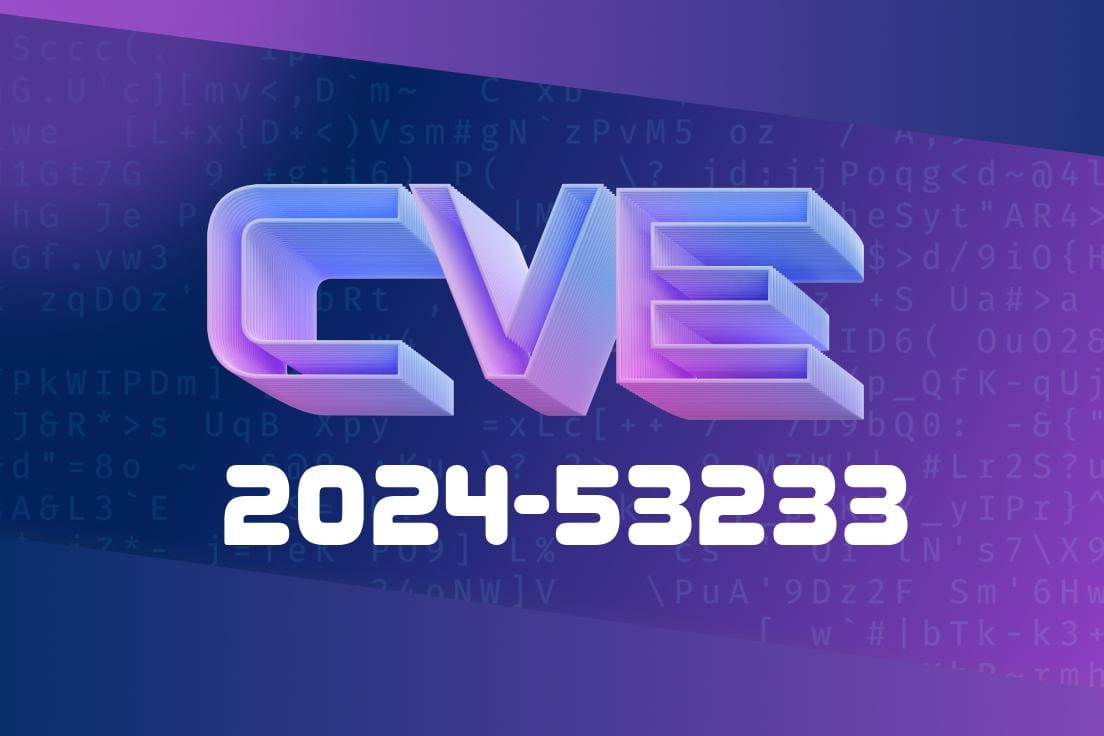CVE-2024-53233 is a recently resolved security issue in the Linux kernel’s Unicode handling subsystem. It specifically affects the utf8_load() function, which is responsible for loading Unicode data tables in the kernel. This post will break down what happened, why it’s important, how the vulnerability can be triggered, and how it’s been patched. If you’re a system administrator, kernel developer, or just interested in the nuts and bolts, this is for you!
What Is Affected?
The vulnerability resides in the Linux kernel’s unicode subsystem. When dealing with UTF-8 encoding, the kernel uses a generic function called utf8_load() to bring in a data table symbolized as utf8_data_table.
The Root Problem
The function would request the utf8_data_table symbol, check whether the requested UTF-8 version is supported, and if not, it would try to "put" (release) the data table using symbol_put().
Here’s the catch:
- symbol_put() requires the symbol’s unique string name as an argument, not the pointer to the symbol itself.
What Was Happening?
If an unsupported UTF-8 version was requested, the code would reach the error handling path and call symbol_put(utf8_data_table) (where utf8_data_table was a *pointer*), instead of the symbol name. This led to a page fault and kernel crash:
kernel BUG at kernel/module/main.c:786!
RIP: 001:__symbol_put+x93/xb
Call Trace:
<TASK>
? __die_body.cold+x19/x27
? die+x2e/x50
? do_trap+xca/x110
? do_error_trap+x65/x80
? __symbol_put+x93/xb
? exc_invalid_op+x51/x70
? __symbol_put+x93/xb
? asm_exc_invalid_op+x1a/x20
? __pfx_cmp_name+x10/x10
? __symbol_put+x93/xb
? __symbol_put+x62/xb
utf8_load+xf8/x150
Why This Is Dangerous
- Denial of Service: Anyone who could trigger the utf8_load() path with an unsupported version could cause a kernel crash, potentially leading to denial-of-service on affected machines.
- Kernel Panic: A fault like this one kills the kernel instantly, affecting availability and possibly leading to data loss or system downtime.
Here’s a simplified snippet that demonstrates the above issue
// Pseudocode highlighting the problematic pattern
void* utf8_data_table = symbol_get("utf8_data_table");
if (!supported_version) {
// This is *wrong*: passing the pointer, not the symbol name
symbol_put(utf8_data_table);
return -EINVAL;
}
What should happen?
You should call symbol_put() with the symbol name
if (!supported_version) {
// Correct: pass the symbol's unique name
symbol_put("utf8_data_table");
return -EINVAL;
}
Exploit Details
An attacker would need a userland interface or kernel path that allows requesting an unsupported UTF-8 version, thus causing the buggy symbol_put() call.
- It would be possible to craft requests to the unicode subsystem with certain invalid or unsupported UTF-8 version parameters.
Proof of Concept (PoC) Scenario
1. User process (or kernel function) calls for a specific, unsupported UTF-8 version via a filesystems or input-output path.
Patch & Resolution
The fix is simple but crucial: Always pass the symbol string, not the pointer, to symbol_put().
Patched Code Snippet
void* utf8_data_table = symbol_get("utf8_data_table");
if (!supported_version) {
symbol_put("utf8_data_table"); // Fixed!
return -EINVAL;
}
Merged Fix:
The patch is merged in upstream kernels.
- Upstream commit patch (kernel/git/torvalds/linux.git)
- CVE details on cvedetails.com
References
- LKML Patch Discussion (lkml.org)
- kernel.org Patch Commit
- CVE Record: CVE-2024-53233
Kernel developers
- Be careful with module/symbol reference management!
Conclusion
CVE-2024-53233 was a dangerous bug caused by a simple mistake: passing a pointer instead of a string. But in kernel-space, these errors can have catastrophic results. Always updating your system and understanding security advisories like this makes for a more stable and secure Linux ecosystem.
Timeline
Published on: 12/27/2024 13:50:20 UTC
Last modified on: 11/03/2025 21:17:45 UTC
